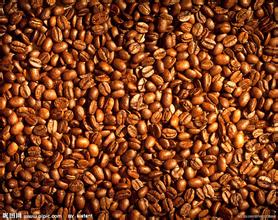History and Culture of Coffee cultivation in China introduction to the taste treatment of coffee grinding scale varieties
History and Culture of Coffee cultivation in China introduction to the taste treatment of coffee grinding scale varieties
The cultivation and production of coffee in the 17th century has always been monopolized by Arabs. At that time, it was mainly used in medicine and religion, and doctors and monks admitted that coffee had the effects of refreshing, awakening, strengthening the stomach, strengthening the body and stopping bleeding. The use of coffee was documented at the beginning of the 15th century and was integrated into religious ceremonies during this period. At the same time, it also appeared in the folk as a daily drink. Because drinking was strictly forbidden in Islam, coffee became a very important social drink at that time.
In 1570, when the Turkish army besieged Vienna and failed to retreat, a bag of black seeds was found in the Turkish army's barracks. No one knew what it was. A Polish man who had lived in Turkey took the bag of coffee and opened his first coffee shop in Vienna. At the end of the 16th century, coffee began to spread into Europe on a large scale through Italy in the name of "Islamic wine". It is said that at that time, some Catholics thought coffee was a "devil's drink" and encouraged Pope Clemon VIII to ban it, but after the pope tasted it, he thought it was drinkable and blessed it, so coffee became more and more popular in Europe.
At first, coffee was expensive in Europe. Only aristocrats could drink coffee, and coffee was even called "black gold". Until 1690, a Dutch captain sailed to Yemen and got some coffee seedlings, which were successfully planted in Indonesia. In 1727, the wife of a diplomat in Dutch Guiana gave some coffee seeds to a Spaniard in Brazil, where he planted them with good results. The climate in Brazil is very suitable for coffee growth, and coffee has spread rapidly in South America since then. Coffee, which has fallen in price due to mass production, has become an important drink for Europeans.
There are considerable coffee planting bases in Yunnan, Hainan, Guangxi, Guangdong and other provinces in China, and some world-famous coffee companies, such as Maxwell, Nestl é, Colombia and so on, have set up branches in China. They not only sell coffee products to China, but also purchase coffee beans from coffee planting bases in China, which not only promote coffee sales in China, but also promote the development of coffee planting industry.
In the 1930s, the earliest cafe in Shanghai opened on the Bund for foreign sailors to enjoy their coffee, perhaps with a sense of relieving homesickness. Coffee at that time was called "cough potion" by Shanghainese. Of course, this is just a segment of the Shanghai Cafe. In Shanghai at that time, there were many overseas Chinese who returned from overseas. They kept the habit of drinking coffee in their lives-not just going to the cafe. More often, they taste strong coffee in their own restaurant or living room.
As coffee is widely known as a drink with a long history, coffee is being accepted by more and more Chinese people. Some data show that China's coffee consumption is increasing year by year, and is expected to become an important coffee consumer in the world. Today, Yunnan coffee produced in China's own land, with its noble quality and low price, will promote this trend, guide this fashion, become the Chinese people's own coffee brand, and have China's own unique coffee culture.

Important Notice :
前街咖啡 FrontStreet Coffee has moved to new addredd:
FrontStreet Coffee Address: 315,Donghua East Road,GuangZhou
Tel:020 38364473
- Prev

Yunnan Enterprises to build Asia's largest Coffee Base in Laos
Zhang Yue, deputy general manager of Chongqing Neng Investment Group, said that Chongqing Neng Tou, a key state-owned enterprise in Chongqing, has formulated a coffee development strategy to promote enterprise transformation and upgrading, and its Chongqing Coffee Trading Center was officially listed on June 17, 2016. With the support of the governments of China and Laos, the company will cooperate with Yunnan Changshengda to jointly invest in building the largest original coffee base and industrial park in Asia.
- Next

The Master of Western political Science partnered with people to sell coffee and opened six chain stores in six years.
In 2008, Wang Xiaokang was admitted to the law major of Southwest University of political Science and Law. In 2010, Wang Xiaokang met Xu Tao, Hu Yu and Chen Xuemei, who share common entrepreneurial ideals. According to Xu Tao's proposal and market analysis, several people immediately took action and rented the facade to start a business. At first, their idea was to make a customized tour on their own, and several partners took their usual savings in living expenses and awards.
Related
- Can lightly roasted coffee beans be used to extract espresso? How finely should you grind high-quality coffee beans to make Italian latte?
- What is the difference between the world's top rose summer coffee and Yejia Shefi? What are the flavor characteristics of Yega Shefi coffee and Panama rose summer?
- The ceremony is full! Starbucks starts to cut the ribbon at a complimentary coffee station?!
- A whole Michelin meal?! Lucky launches the new "Small Butter Apple Crispy Latte"
- Three tips for adjusting espresso on rainy days! Quickly find the right water temperature, powder, and grinding ratio for espresso!
- How much hot water does it take to brew hanging ear coffee? How does it taste best? Can hot water from the water dispenser be used to make ear drip coffee?
- What grade does Jamaica Blue Mountain No. 1 coffee belong to and how to drink it better? What is the highest grade of Blue Mountain coffee for coffee aristocrats?
- What are the flavor characteristics of the world-famous coffee Blue Mountain No. 1 Golden Mantelin? What are the characteristics of deep-roasted bitter coffee?
- Can I make coffee a second time in an Italian hand-brewed mocha pot? Why can't coffee be brewed several times like tea leaves?
- Hand-brewed coffee flows with a knife and a tornado. How to brew it? What is the proportion of grinding water and water temperature divided into?

